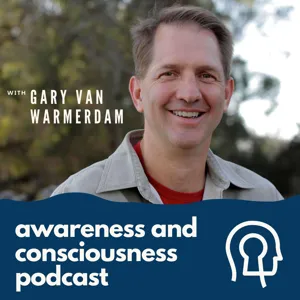Podcast Summary
The Power and Pitfalls of Self-Control and Gratitude: Developing the habit of gratitude can help strengthen self-control, enabling us to resist immediate gratification and achieve long-term goals in various domains of life.
The importance and limitations of self-control are explored in this episode of Hidden Brain, with a focus on the practice of gratitude as a habit that can help us achieve our goals. The story of The Ant and the Grasshopper and the famous marshmallow test highlight the benefits of delayed gratification and self-control. While the marshmallow test has been criticized for its narrow sample, the concept of self-control remains relevant to many domains in our lives, from academic and social outcomes to saving for retirement and maintaining health. It ultimately boils down to the question of whether we can choose to do the difficult thing now for a greater reward in the future.
The Importance of Self-Control for Future Success: Self-control is necessary for success and requires sacrifice, but giving in to temptation can lead to problems. Distraction and humor may be more effective than willpower and logic. Self-control is also important for acting with integrity.
Self-control is essential for future success and requires sacrifice in the short term. Giving in to temptation for immediate gratification often leads to problems. The marshmallow test was adapted to replace marshmallows with money, and the experiment showed that many people lack self-control when it comes to financial decisions. The traditional model that relied on willpower and logic is often ineffective. Cookie Monster's model of self-control, which involves distraction and humor, may be more successful. Self-control is not only necessary for personal goals but also for acting with integrity.
The Danger of Rationalization and Lack of Self-Control: Rationalizing away the need for self-control leads to less willpower and a greater likelihood of giving in to temptation. Understand that emotions drive towards immediate gratification and work towards managing them.
People often rationalize their lack of self-control and give in to temptation when they think they can get away with it. Researchers found that in an experimental setup where volunteers were asked to choose between a difficult task and an easy one using a coin flip, the vast majority cheated and chose the easy task. When asked later, most volunteers rationalized their behavior, which suggests that rationalizing away the need for self-control makes it less likely that people will exert willpower. Willpower is difficult and stressful to maintain, and fighting desires is not always effective. Instead, people should understand that their emotions often drive them towards immediate gratification.
The Power of Emotions in Self-Control: Emotions can be a useful tool in achieving goals, and cultivating positive emotions like gratitude and compassion can improve social relationships and overall well-being. Don't see emotions as the enemy, but rather a potential ally in achieving resolutions.
Emotions are not the enemy of self-control, but a powerful tool for achieving goals. They help us navigate the future by altering the computations in our brain to predict the best course of action. Willpower alone can lead to stress and negative impacts on health and well-being. Emotions like gratitude, compassion, and pride can cultivate social relationships that make us more resilient. Those who work hard to exercise willpower and persevere in pursuing their goals, but fail, are more likely to suffer a hit to their well-being because they haven't focused on cultivating social relationships. Emotions can play a powerful role in generating self-control, and we should not see them as the enemy of our resolutions.
The Power of Emotions in Motivation and Self-Control: Emotions, particularly pride and gratitude, can be powerful tools for overcoming difficult tasks and improving self-control and decision-making. Reflecting on what we are grateful for can lead to better long-term thinking without relying on willpower or logic.
Emotions play a huge role in motivation and self-control. Feeling pride for past accomplishments and anticipated future success can help overcome difficult tasks. Additionally, feeling gratitude can significantly improve self-control and decision-making by changing how our brain values future rewards. This suggests that simply reflecting on things we are grateful for can indirectly lead to better long-term thinking without needing to rely on willpower or logic.
The Power of Inducing Gratitude: Encouraging gratitude in engineered situations can lead to selfless behavior and strong relationships, benefiting both the individual and those around them. The feeling of gratitude can have a physical impact and can lead to positive outcomes for all involved.
Inducing gratitude through engineered situations can lead to a willingness to pay it forward and make sacrificial decisions for others, which ultimately benefits the individual in the long run. These gains can be seen by cementing strong relationships and having people who will reciprocate in times of need. The feeling of gratitude is powerful and can lead to a physical rush, as observed in real-life situations where someone goes out of their way to help. Overall, inducing gratitude can have positive effects on both the individual and those around them.
The Power of Gratitude and Its Relationship Building Benefits: Gratitude is a powerful tool that can help strengthen relationships and build trust with others. It doesn't have to involve expensive gifts, but rather personal effort that demonstrates care. By cultivating gratitude through daily reflection, we can also improve our ability to exercise and manage stress.
Gratitude is a powerful emotion that cements relationships and makes us want to pay it back, leading to an upward spiral of building relationships. It's not always the most expensive gift that generates gratitude, but the personal effort that communicates care. Self-control evolved to make us have good character, be fair, cooperate and work with others. Expressing gratitude through daily reflection can help us better engage in exercise and reduce stress.
The Importance of Practicing Gratitude for Enhanced Well-being: Cultivating a regular gratitude practice can reduce stress, improve health habits, boost goal achievement, and strengthen relationships, making it a valuable habit to incorporate into daily life.
Practicing gratitude enhances well-being by reducing stress caused by illness, disconnection, and loneliness. Wendy Mendes' study found that gratitude acts as a booster shot for stress reduction. Cultivating gratitude regularly builds a habit that affects many dimensions of life such as exercise, health, diet, saving money, studying, and valuing the future more than the present. Thanksgiving is not the only occasion to express gratitude as it is important to cultivate gratitude more regularly to gain future goals. Gratitude impacts individuals' relationship quality and reduces symptoms of illness effortlessly by changing values and inducing gratitude on oneself.
The Power of Gratitude in Strengthening Relationships: Showing gratitude towards those who cause conflict can bring appreciation and strengthen relationships. Recognizing good intentions and finding opportunities for gratitude can help focus on the long-term interests of a relationship.
Showing gratitude towards those who may have initially caused us conflict can lead to a deeper appreciation for their actions and strengthen our relationships with them. In the case of David DeSteno, his father's wise compassion in pushing him to engage in academic activities during summers led to more opportunities in the future. This realization led David to express gratitude towards his father, highlighting the importance of being aware of others' intentions and finding opportunities for gratitude in our own lives. While some emotions may cause us to become shortsighted, gratitude can help us focus on our long-term interests and strengthen our relationships.
The scientific value of ancient practices like gratitude and meditation: Gratitude and compassion can lead to physical and mental well-being, while regular meditation can improve cognitive activity and self-control. Ancient rituals have scientific value and can lead to significant positive changes in one's life.
Practices like gratitude and compassion, often presented theologically, have been found to lead to long-term physical and mental well-being. Ancient practices like prayer and saying grace regularly before meals serve as nudges to the mind. Through his research, David DeSteno found that delaying gratification becomes easier with feelings of compassion, similar to the power of gratitude. Buddhist monks who meditate regularly experience these feelings of compassion more, thus making self-control more attainable. A study conducted in Boston found novices who meditated for eight weeks experienced significant changes in cognitive activities. This suggests that regular meditation is a practice that can lead to significant positive changes in one's life and that ancient rites and rituals contain scientific value.
Cultivating Gratitude as a Skill: Practicing gratitude through meditation and counting blessings can help individuals become more grateful regularly. Gratitude is contagious and can create a virtuous cycle of paying it forward, inspiring a positive environment.
Gratitude can be cultivated as a skill to achieve goals, and it is not just a trait or emotion that pops up unbidden. Studies show that meditation builds automatic compassion response and counting blessings can make one feel more grateful regularly. Moreover, emotions such as gratitude are contagious, and it creates a virtuous cycle that prompts people to pay it forward. In an experiment, meditators were more likely to offer help and sacrifice their comfort to assist someone in need. Therefore, gratitude can help individuals to perceive their emotions as tools to lead a fulfilling life. It can also inspire others to create a positive and supportive environment around them.
The Power of Gratitude in Creating Successful Cycles of Giving and Cooperation: Expressing gratitude to others leads to cycles of giving and cooperation, which result in long-term gains and a sense of appreciation. Gratitude does not make us weak, but rather encourages virtuous behavior and success.
Gratitude leads to cooperation and cycles of giving that result in long-term gains, and it amplifies the pleasure of giving and makes us more willing to engage in virtuous behavior. It does not make us suckers or willing to be walked all over, but rather it makes us want to do the right thing and call out injustices. Acknowledging unsung heroes and expressing gratitude to others, even if they are third parties we do not know, gives us a sense of appreciation for the cooperative efforts necessary for achieving our goals. Being a jerk may yield short-term gains, but in the long-term, cooperation and gratitude lead to greater success.
The Power of Gratitude: Acknowledging Our Interconnectedness: Recognizing the contributions of others and expressing gratitude can inspire kindness and lead to a better outcome for everyone. Practicing gratitude ensures that blessings continue to come our way.
Gratitude is a marker of recognizing that we are interconnected, and everything achieved is not solely through our own efforts. It reminds us to pay it back and to pay it forward, leading to a better outcome for everyone. We must acknowledge the unsung heroes who contribute to our success. The elderly often require round-the-clock care, and the caregivers go above and beyond their paid responsibilities to make a significant impact. This generous act evokes a sense of gratitude and inspires us to do wonderful things for others. Practicing gratitude ensures that blessings continue to come our way.


